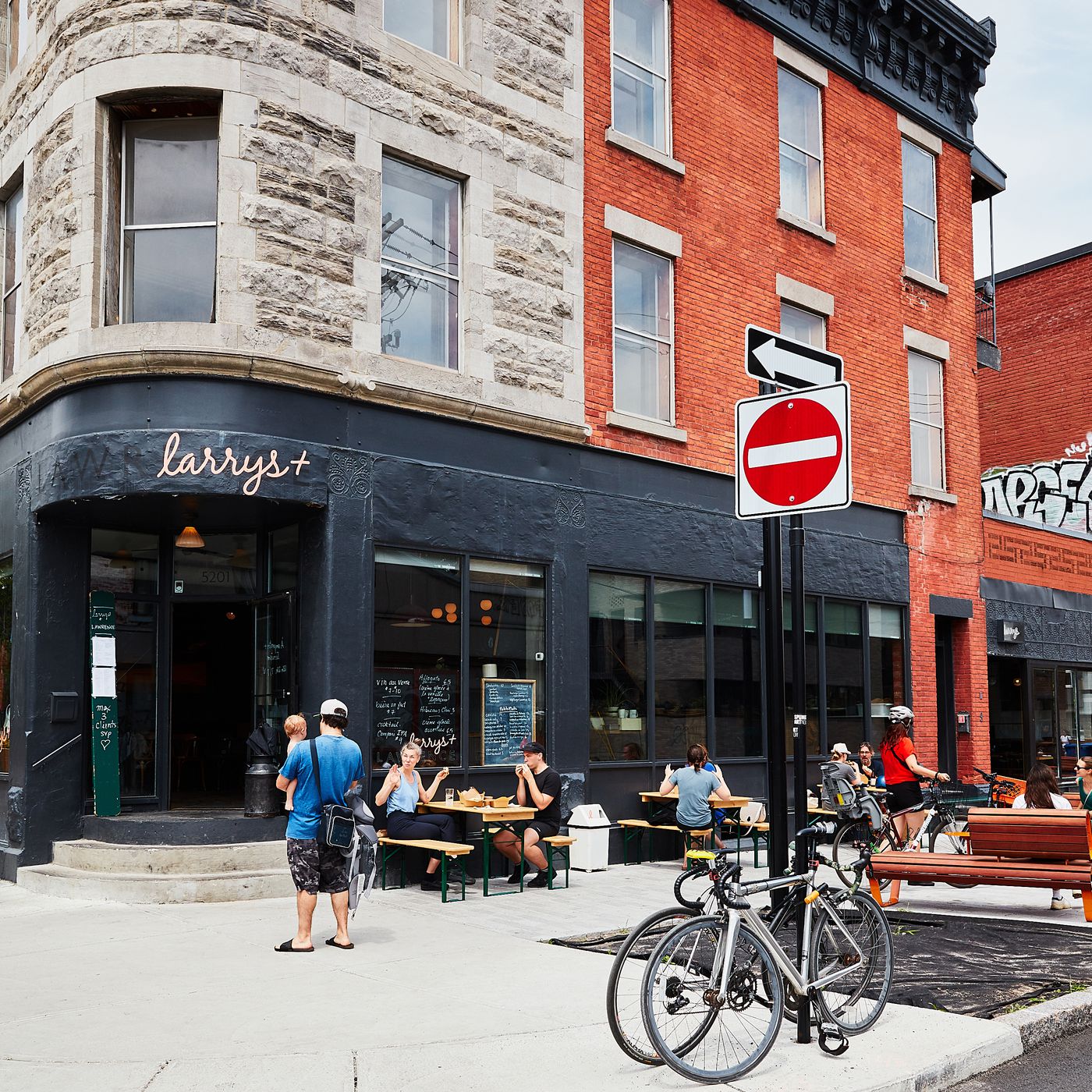In the heart of Mile End sits Larry’s, a cafe-restaurant that has served breakfast, lunch, and dinner to its visitors since 2016. In May, the restaurant made a notable announcement: It would end the custom of tipping once it reopened its doors for indoor dining. While Larry’s is not the first restaurant in Montreal to implement this policy, it is the only one currently operating, as the others have closed. As restaurants adapt to a post-COVID world, Larry’s decision to get rid of gratuity is a bold step toward positive change for workers in the service industry.
The history of tipping is long and troubling. Its origins can be traced to feudal Europe, where lords would occasionally pay particularly helpful serfs extra money at the end of the year—both as an act of gratitude and as a way to flaunt wealth. In the 1850s and 60s, Americans traveling abroad learned about this custom, and, wanting to emulate aristocracy, brought the habit of tipping back to their servants at home. Initially, the practice received severe backlash as lower-income individuals were concerned that they could not afford it. Labour rights activists called it patronizing. Nevertheless, after the end of the Civil War in 1865, an influx of recently emancipated Black workers stimulated the United States economy. Restaurants, railways, and other industries employing servers liked the idea of not having to pay their new servers. Thus, tipping quickly spread throughout the South and slowly expanded into Canada. The practice of tipping has become ingrained in Canadian society in recent decades, even finding its way into some minimum wage legislation.
Beyond tipping’s racist roots, the practice causes discrimination in the restaurant industry today. White employees make more than employees of colour, staff on busier shifts make more than those on quiet nights, waiters make more than people working in the kitchen, and so on. Women in the service industry are more likely to face sexual harassment because of the power imbalance held by male patrons. The wage disparity between Black women and white men is twofold: Black women are more likely to work in more casual and less expensive restaurants, and they are often tipped less. Tipping is but another form of inequality in the restaurant industry. However, discrimination also goes in the opposite direction: Servers in restaurants are more likely to racially profile clients on how well they will tip. For instance, servers often offer worse service to Black patrons, as some waiters assume that they will tip less.
As the service industry offers many entry-level positions, it is common for university students to work part-time at restaurants, like Larry’s, or at bars to help pay for school. Larry’s plans to have a starting salary of $18 per hour for their employees—a wage much higher than Quebec’s current $13.50 minimum wage and $11.40 service wage. Having a higher baseline wage means employees need to put in less hours to make the same amount of money, allowing for more of a work-life balance. This is especially important for university students, who balance many responsibilities at once. Paying employees a fair wage instead of forcing them to rely on tips treats the employees with respect, granting employees more autonomy and financial security.
While the pandemic forced many restaurants to close, employees who were fortunate enough to continue working often faced reduced hours and risked contracting COVID-19 at work. Despite these working conditions, restaurant workers were not considered essential during Quebec’s vaccine roll-out, and as a result, many people are leaving the industry. Higher pay and equal treatment would incentivize workers to remain in the field. Larry’s might be the only restaurant in Montreal taking steps to offer a better salary and working environment for its employees, but hopefully it will not be the last.









